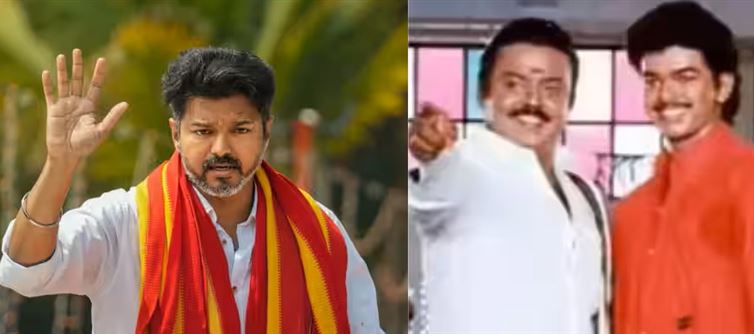
This isn’t just a personal grievance—it opens up a larger debate about opportunism, political memory, and the selective use of legacies in tamil Nadu’s volatile political landscape.
1. The Silence When It Mattered
When Vijayakanth took the plunge into politics and founded DMDK, many in the film fraternity—including Vijay—chose to remain silent. They neither extended support nor endorsement. That silence then, is now being contrasted with Vijay’s sudden invocation of Captain’s name to bolster his own political legitimacy.
2. The Absence During Crisis
Vijayakanth’s declining health was no secret. His illness drew empathy across the state, with many leaders visiting to express solidarity. But Vijay, the superstar turned politician, was conspicuously absent. Premalatha’s accusation underlines this absence, questioning the sincerity behind invoking Captain’s legacy posthumously.
3. The Opportunism of Legacy Politics
Tamil Nadu politics thrives on legacy—be it MGR, Karunanidhi, or Jayalalithaa. Invoking icons is a time-tested formula to win emotional capital. But Premalatha’s statement stirs a moral question: can a leader borrow selectively from a legacy they never supported or respected during the person’s lifetime?
The Larger Lesson
Premalatha’s remarks resonate because they touch a raw nerve in tamil Nadu politics—the thin line between homage and opportunism. For Vijay, who is seeking to carve his political identity, the challenge will be to prove that he’s not just cashing in on Captain’s aura but genuinely respects the sacrifices and struggles of those before him.
Because in tamil Nadu, legacies can lift you—but they can also haunt you.




 click and follow Indiaherald WhatsApp channel
click and follow Indiaherald WhatsApp channel